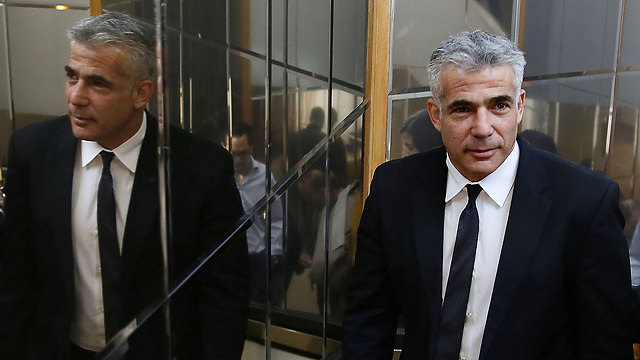
Top union reaches deal to raise minimum wage, preventing national strike
Histardut Labor Union reaches deal with employers to see Israel's minimum wage go up by NIS 700 to NIS 5,000, thus averting what could have been crippling general strike.
Head of Israel's top labor union has reached a deal which will see Israel's minimum wage go up significantly, preventing a crippling general strike which was slated to begin Thursday, and could have cost Israel almost $500M daily.
Histadrut Labor Union Chairman Avi Nissenkorn and Tzvika Oren, head of an umbrella group of industrialist employers, met and announced that they have reached an agreement regarding the union's demand to see Israel's dismal minimum wage raised by NIS 700.
The Histardut announced it would take Israel to a general strike on December 7th – the first in three years – if its demand the minimum wage be increased to 5,300 shekels ($1,355) a month, up from 4,300, was not met. The finance ministry said in the past it is prepared to raise it, but indications are it will not go beyond 5,000 shekels.
According to the agreement reportedly reached, which will be confirmed by Israel's Manufacturers' Association Wednesday morning, NIS 5,000 will be the new minimum wage, up by NIS 700 from NIS 4,300.
According to the Organization for Economic Co-Operation and Development, Israel's real minimum wage was the 12th highest among 25 countries in 2013.
In dollar terms, it was $14,291 a year in 2013, just behind the United States' $15,080. Israel's cost of living is high, however, and has lead to widespread protests in recent years.
First general strike in three years
Israel faced its first nationwide strike in nearly three years as part of the dispute over the minimum wage, an action that would put the economy at renewed risk after it took a big hit from a summer war in Gaza.
Officials from the Finance Ministry and Histadrut – the umbrella organization for 700,000 public sector workers – have been meeting to avert a strike scheduled to begin on December 7.
If it goes ahead it is likely to shut down the airport, seaports, trains, the stock exchange and dozens of government services, at a cost of up to $500 million a day.
However, Prime Minister Benjamin Netanyahu fired Finance Minister Lapid on Monday evening, complicating negotiations with the massive union.
The last strike, a three-day stoppage in early 2012, cost the economy some 6 billion shekels ($1.5 billion) and ended with a new wage package for low-earning contract workers.
Israel's economy contracted an annualized 0.4 percent in the third quarter following the 50-day war between Israel and Hamas militants in Gaza. It is forecast to grow 2.2 percent this year, sharply down from 3.2 percent in 2013.
A strike "certainly can knock something off of growth, especially if it drags on," said Barclays economist Daniel Hewitt, although he said a two-day stoppage would not derail the economy.
While Israeli media have reported that the finance ministry is willing to raise the minimum wage to 5,000 shekels a month, a ministry spokeswoman said nothing was final.
She said the ministry was willing to give raises to those truly making the minimum wage but that only a small percentage of civil servants actually earn the minimum.
Reuters contributed to this report












